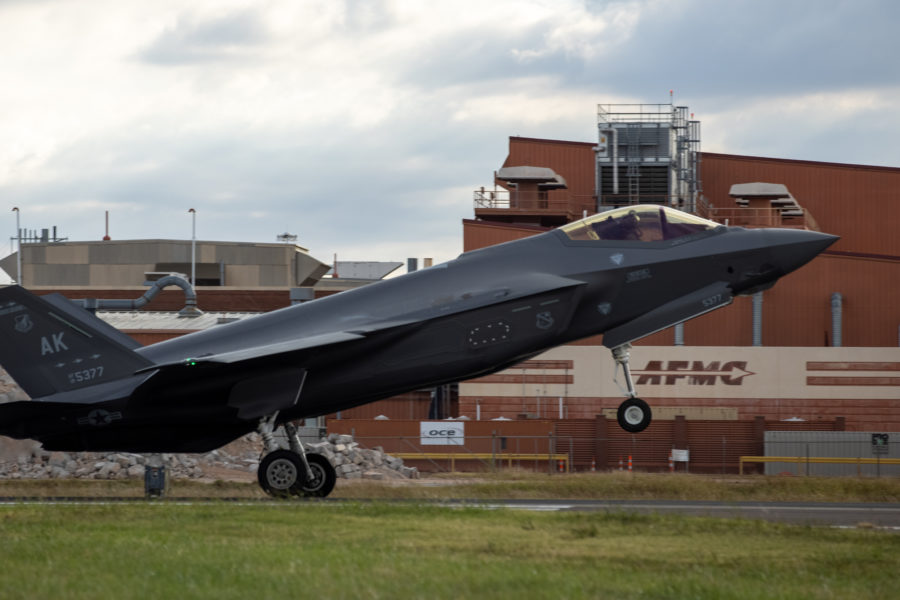Lockheed Martin has resumed delivering F-35s to the U.S. government, the Joint Program Office announced March 14, three months to the day after they were halted in the wake of a Dec. 14, 2022 F-35B crash. The first aircraft delivered was an F-35A headed for Air Force duty.
The delivery comes eight days after Lockheed was cleared to resume F-35 flight operations, following Pratt & Whitney’s development of a technical fix to address harmonic resonance issues with its F135 engines, discovered in the aftermath of the December crash.
The JPO has not said how many aircraft or engines were affected by the issue, but Lockheed and Pratt have said changes were made in production to prevent the problem. A fleetwide technical order was issued for all F-35s to be inspected and have a correction applied. Pratt resumed F135 engine deliveries March 2.
Pratt has asserted that the harmonic resonance issue is a well-understood phenomenon and only manifested after more than 600,000 flight hours on the F135 fleet.
Naval Air Systems Command’s investigation into the root cause of the December crash is not yet complete. Neither NAVAIR nor the JPO have indicated that the harmonic resonance issue was the cause of the accident, which occurred when the F-35B, in vertical flight mode, nosed down into Lockheed’s Fort Worth, Texas, runway from an altitude of less than 50 feet.
“The Defense Contract Management Agency and the F-35 Joint Program Office resumed acceptance … of F-35 aircraft today from Lockheed Martin and are currently working with U.S. services, partner nations, and foreign military sales customers on the movement of aircraft to their operational units,” the JPO said in a press release.
“Prior to acceptance, the aircraft passed extensive technical and flight worthy checks ensuring their readiness for operational use,” the JPO said.
Lockheed Martin had completed but not delivered 26 aircraft during the time the delivery hold was in place. Those aircraft have been cleared to fly since March 6, and have been going through the DD250 process, which entails a number of flight test checks to ensure the aircraft are safe to fly and to document any deficiencies.
The company was not able to say how long it will take to clear the backlog of deliveries.
“Resuming acceptance and flight operations was the culmination of two and a half months of exceptionally strong partnerships with the JPO and industry teams,” said Col. Joe Wimmer, Commander of DCMA’s Lockheed Martin Fort Worth operations, in a statement released by the JPO.
“That work allowed us to confidently resume operations safely, and deliver quality jets to our warfighter customers,” he said.
Lt. Gen. Michael J. Schmidt, F-35 Program Executive Officer, said the government-industry F-35 team “worked tirelessly on this effort and their work demonstrates true professionalism and a devotion to accomplish complex missions with stringent ingenuity.”
